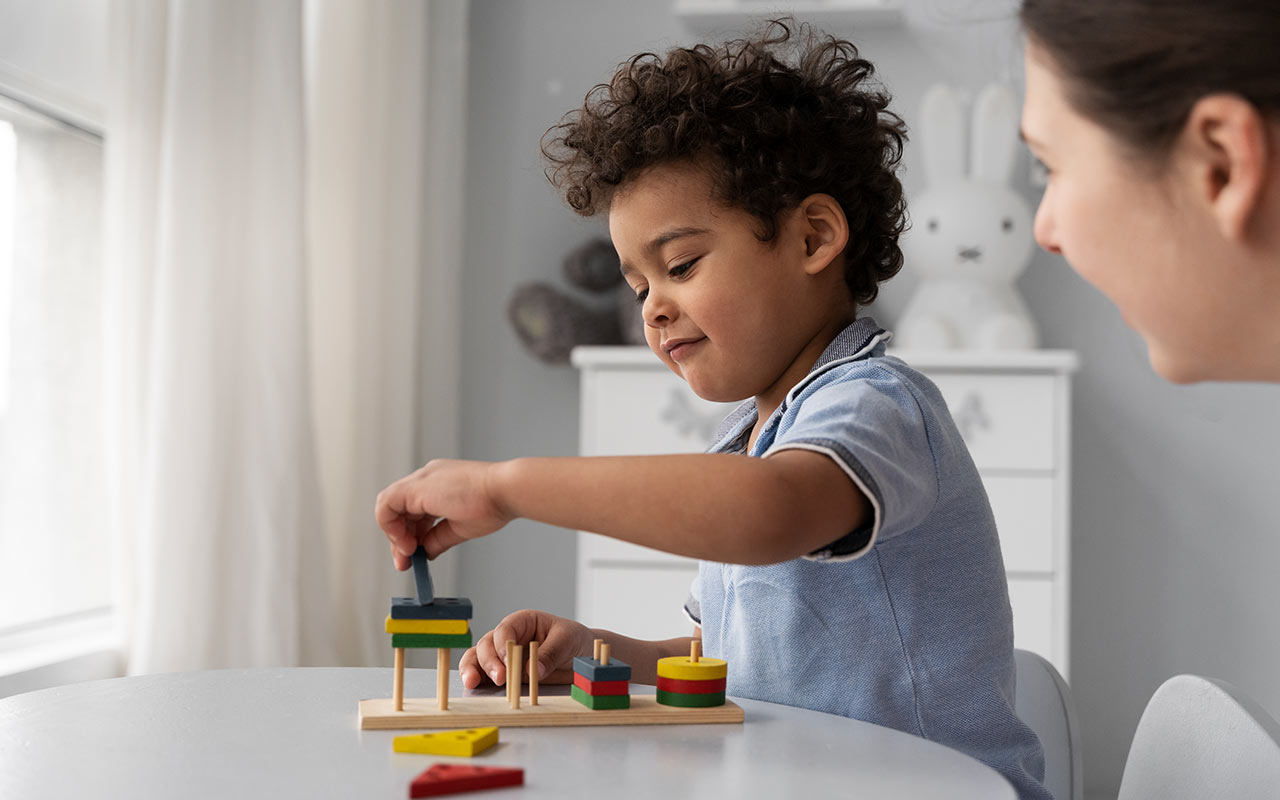Gain your children’s intelligence easily
Contrary to popular belief, developing a child’s IQ is not about creating countless IQ questions or assessment books. Nor is it about improving their memory. They are the daily activities of what parents do and you say it matters.
Here are 5 things you can do to improve your child’s intelligence.
- Reading to improve verbal and linguistic intelligence
Linguistic intelligence is the ability to process information using words and language. Compared to processing images or speech, reading is more difficult because parts of our brain make connections. When we read, we are also led to build and imagine. Reading not only helps improve the language needed for communication and to perform the tasks of daily life, but also keeps our minds sharp. Starting reading early can not only help your child grow in literacy, but it can also benefit a wider range of cognitive skills that will be crucial later in life. An early start to reading is important for predicting a lifetime of the reading experience. In a study by Professors Cunningham and Stanovich, they found that students who started reading quickly were more likely to read more over the years. The results also showed that the reading volume made a significant contribution to vocabulary, general culture, verbal fluency, and spelling. In short, reading makes you smarter!If you have young children who are just starting to speak and read, read with them every day to broaden their vocabulary. When reading with them, specifically draw attention to specific words. For older children, introduce concept stories to expand their vocabulary and spark their imagination. This helps them better understand more abstract concepts. - Play with blocks to improve spatial intelligence
Puzzles, bricks, memory games, crafts, figurines – these are tools every child should grow up with. Give your pre-schoolers plenty of time and space to play with these tools. Block and building play is particularly important and beneficial as it provides your child with a variety of learning opportunities. By building structures or playing with blocks, children discover spatial awareness and develop their spatial intelligence. Spatial intelligence is the ability to visualize images in the mind. When deciding how to stack blocks, under, over, or vertically, kids are busy using their spatial intelligence. Studies have shown that developing spatial skills supports later learning in science, technology, engineering, and math. Even young children, who visualize spatial relationships better, seem to develop better math skills in elementary school. - Believe in them
Whether your child is really smart or smarter than average doesn’t matter or makes a difference if you don’t say so. A study was conducted in which elementary school teachers told a group of randomly selected students that they were smart. No specific test was done to identify these children as “intelligent” and nothing was added or changed in the classroom. But at the end of the school year, the children who were told by their teachers that they were “smart” had higher average IQs than the rest of their classmates.It is your words and your belief in them that will affect them for life. - Encourage efforts to develop a growth mindset.
Compliments are most effective when they focus on the process and the commitment rather than the end result. Your child’s learning and effort should be the main point of praise.Professor Carol Dweck of Stanford University offers two perspectives on the intelligence that students can have. One view is that the intellect is a “stable set of minds” which is an immutable property. Another view is that the process is not focused on talent or intelligence, but rather on a “mind of growth.” His research shows that encouraging intelligence stimulates more coherent thinking than students who are praised for their processes. When he and his researchers asked fifth graders about nonverbal IQ tests, they found that they avoided more difficult tasks than they praised students for their intelligence. How can I make compliments that promote mental growth?Instead of praising the result, say, “Wow, you got all the points. You are so smart! ” Instead, he said: “I saw that you put a lot of time and effort into doing your homework. I like to try different ways on this math question until you finally understand it. I am proud of your patience and dedication!” It’s also helpful to be specific when it comes to compliments. Children need good motivation to stimulate learning.
- Expect them to be smart.
It’s such a simple tactic, and many parents may not realize the huge difference it can make. In a groundbreaking study titled “Believing You Can Get Smarter Makes You Smarter,” psychologists taught students that intelligence is not a fixed trait, but is variable and can be increased. Which by the way is true?They found that students who received this message performed better academically and took academics more seriously than those who didn’t. For parents, this finding points to a clear course of action. Tell your kids they are smart, expect them to be, and make sure they know they can be smarter tomorrow than they are today and smarter the next day. Convince them that this is true. Because if you do, it will be.
The above ways are more effective to improve the intelligence of children. If you feel your children are not enough brave or intelligent, just follow these steps and you can see it changing. In addition to this, take guidance from a child psychologist to learn further about these methods and more. Our children are our future.










